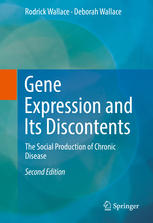

Most ebook files are in PDF format, so you can easily read them using various software such as Foxit Reader or directly on the Google Chrome browser.
Some ebook files are released by publishers in other formats such as .awz, .mobi, .epub, .fb2, etc. You may need to install specific software to read these formats on mobile/PC, such as Calibre.
Please read the tutorial at this link: https://ebookbell.com/faq
We offer FREE conversion to the popular formats you request; however, this may take some time. Therefore, right after payment, please email us, and we will try to provide the service as quickly as possible.
For some exceptional file formats or broken links (if any), please refrain from opening any disputes. Instead, email us first, and we will try to assist within a maximum of 6 hours.
EbookBell Team

4.8
24 reviewsThis book describes how epigenetic context, in a large sense, affects gene expression and the development of an organism, using the asymptotic limit theorems of information theory to construct statistical models useful in data analysis. The approach allows deep understanding of how embedding context affects development. We find that epigenetic information sources act as tunable catalysts, directing ontogeny into characteristic pathways, a perspective having important implications for epigenetic epidemiology. In sum, environmental stressors can induce a broad spectrum of developmental dysfunctions, and the book explores a number of pandemic chronic diseases, using U.S. data at different scales and levels of organization. In particular, we find the legacy of slavery has been grossly compounded by accelerating industrial decline and urban decay. Individual chapters are dedicated to obesity and its sequelae, coronary heart disease, cancer, mental disorders, autoimmune dysfunction, Alzheimer’s disease, and other conditions. Developmental disorders are driven by environmental factors channeled by historical trajectory and are unlikely to respond to medical interventions at the population level in the face of persistent individual and community stress. Drugs powerful enough to affect deleterious epigenetic programming will likely have side effects leading to shortened lifespan. Addressing chronic conditions and developmental disorders requires significant large-scale changes in public policy and resource allocation.